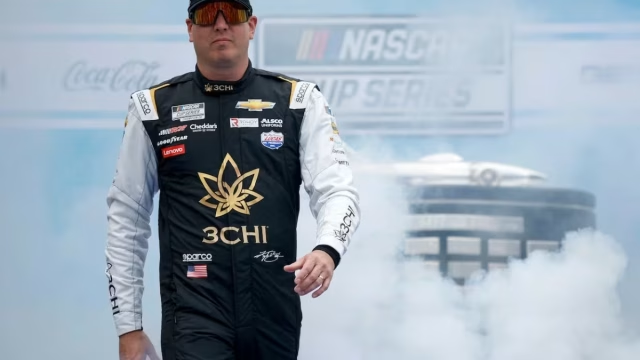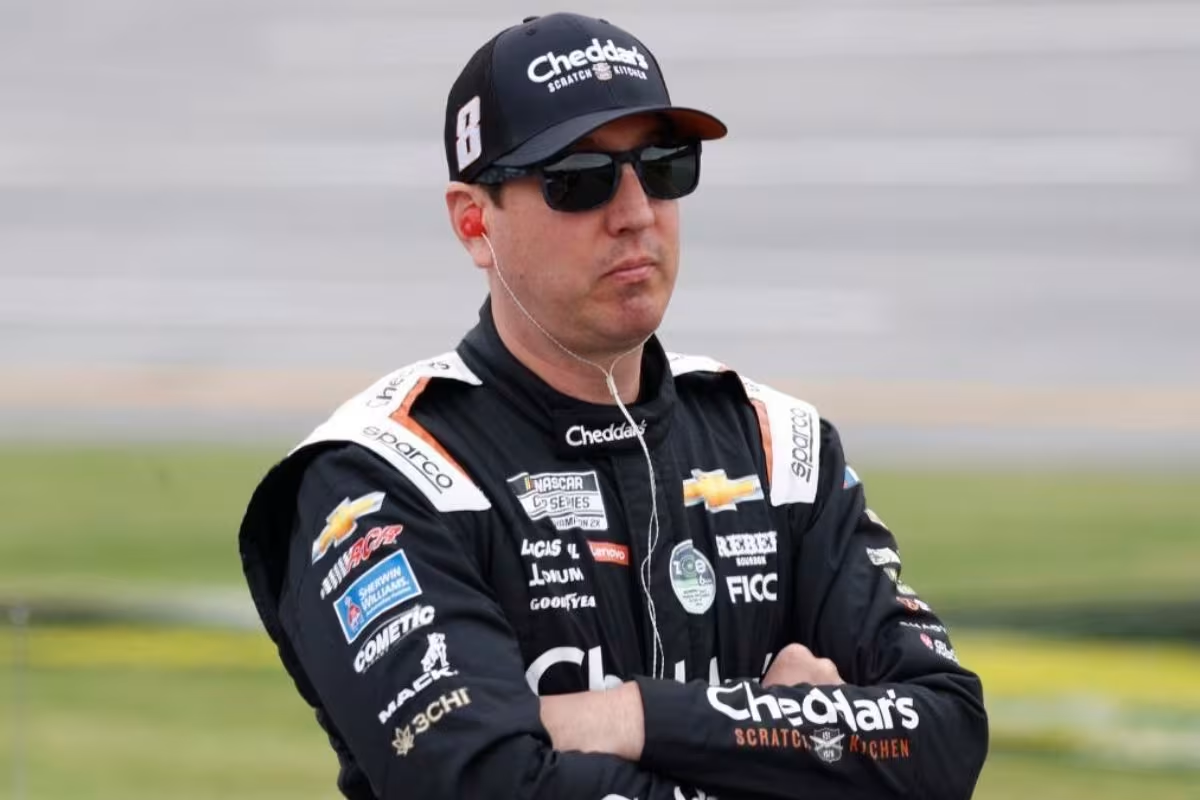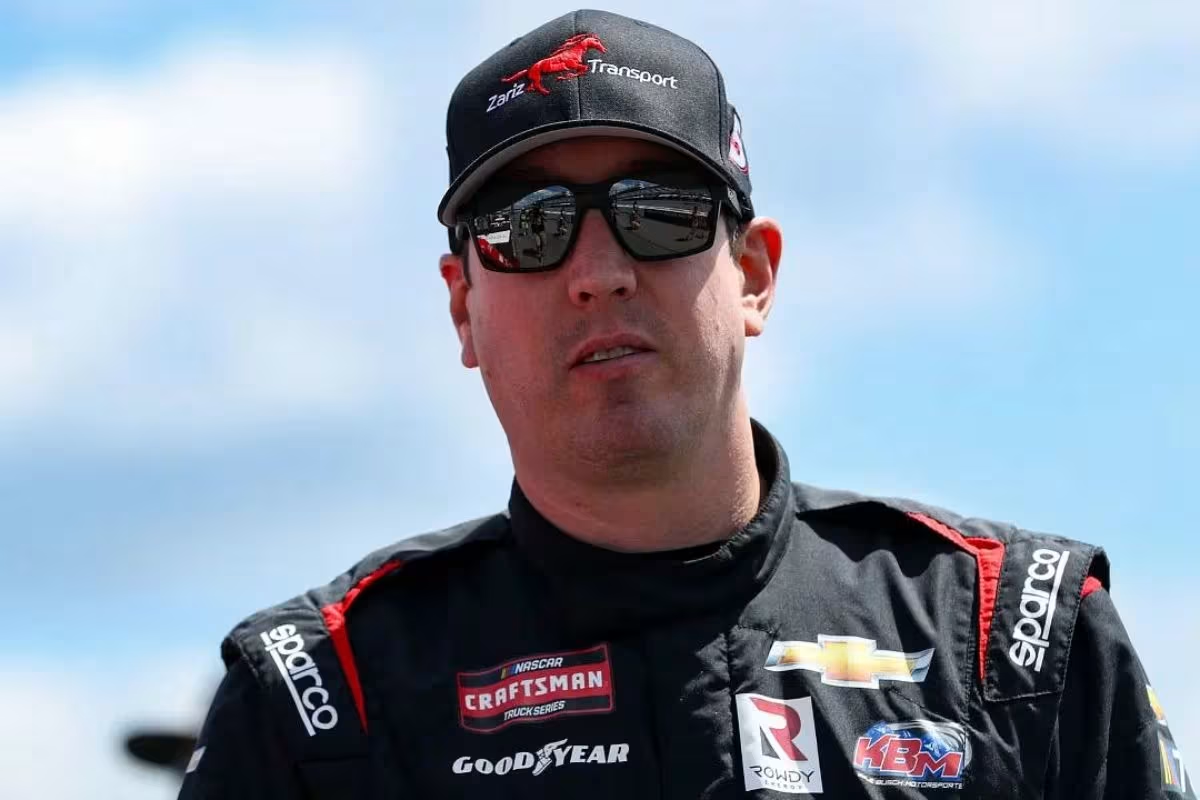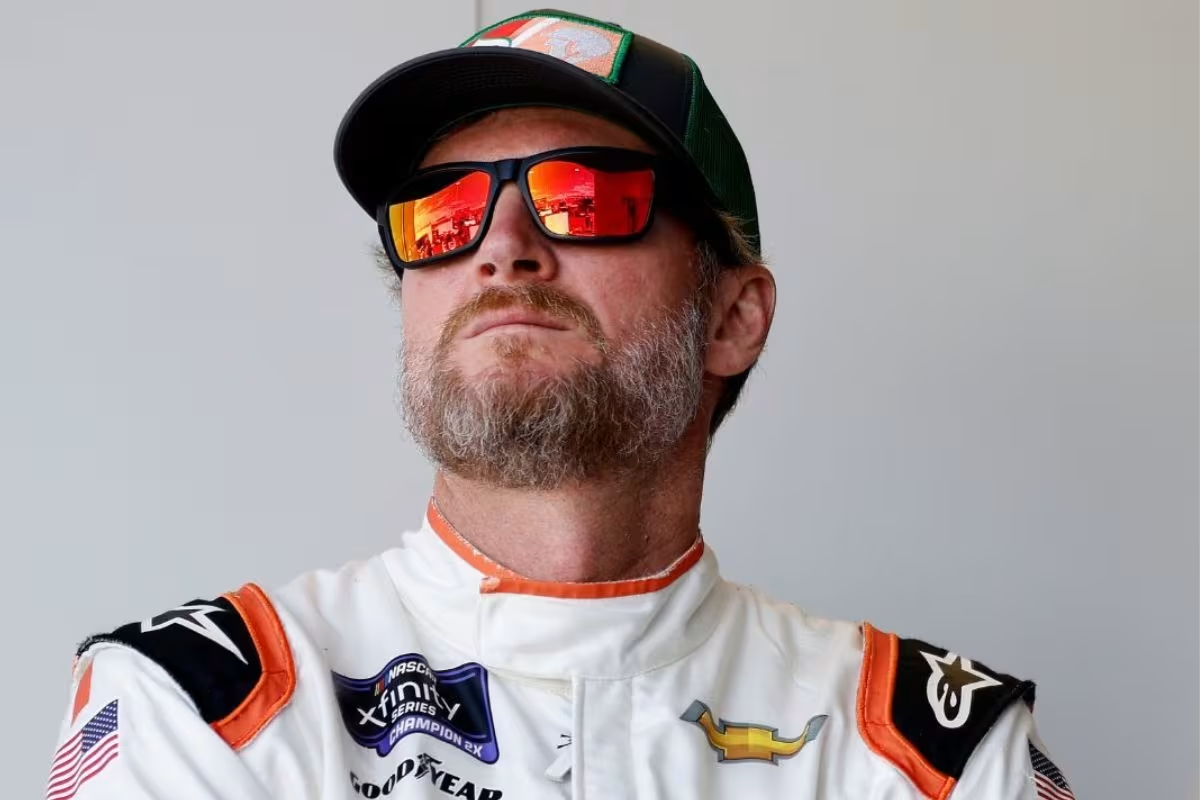Kyle Busch Refuses to Share NASCAR Secrets: Kyle Busch recently gave a surprising take on why he wouldn’t share NASCAR secrets, even if stuck in an elevator with other drivers. Known for his fierce competition and 63 race wins, Busch explained how his knowledge could help others, but he’s not keen on casually giving it away. Why the secrecy? Know more about his thoughts?
Key Highlights
- Kyle Busch prefers solitude to maintain focus and avoid distractions from fellow drivers in confined spaces like elevators.
- He believes sharing information with competitors can weaken his competitive edge in racing.
- The tactical nature of NASCAR necessitates prioritizing preparation over casual interactions with other drivers.
- Busch views racing as a zero-sum game, where knowledge equates to power and success.
- His experiences with rivalries have taught him the importance of maintaining emotional control and clarity in high-pressure situations.
Kyle Busch’s Elevator Interview
During a candid interview, Kyle Busch shared his unconventional perspective on being trapped in an elevator with fellow NASCAR drivers. The seasoned competitor, who has been a prominent figure in the NASCAR Cup Series since 2005, articulated a clear reluctance to share such confined space with his peers.
Busch’s reasoning highlights the complexities of fellowship in a highly competitive environment where knowledge can serve as both a tool and a weapon.
In the interview with NASCAR insider Jeff Gluck, Busch emphasized that while he possesses a wealth of useful information he would gladly disseminate under normal circumstances, the dynamics shift dramatically in a “dead elevator.” This metaphorical expression emphasizes his awareness of the tactical implications of sharing insights that could potentially benefit competitors.
As a driver under Richard Childress Racing, with an impressive record of 63 race victories and two Cup Series championships, Busch’s insights are highly sought after.
His reluctance to engage in casual sharing of information in such a vulnerable setting suggests a calculated approach to his interactions within the NASCAR community.
Comments on Sharing Information
Why would a successful driver like Kyle Busch hesitate to share priceless racing insights, even when prompted? The answer lies in his understanding of the competitive nature of NASCAR and the immense worth of proprietary knowledge. Busch’s assertion that he possesses a wealth of information reflects both pride in his expertise and a tactical mindset. He recognizes that sharing insights can diminish his competitive edge, especially in a sport where milliseconds define success.
“I have a lot of information that could be useful to a lot of people if they would just spend the time.” -Busch
Busch’s reluctance to engage in casual information exchange is not merely about withholding knowledge but rather about prioritizing his time and focus. His comment, “Which I don’t want to spend the time with anybody stuck in an elevator.”
Busch’s Bucket List and Media Consumption
Kyle Busch’s focus on maintaining a competitive edge extends beyond the racetrack to his personal aspirations and media habits. Central to his ambitions is a singular goal: winning the Daytona 500, the crown jewel of NASCAR racing. Having come close with a runner-up finish in 2019 behind his former teammate Denny Hamlin, Busch’s determination to claim this prestigious title exemplifies his relentless pursuit of excellence.
In addition to his racing ambitions, Busch’s media consumption reflects a tactical approach to information. He deliberately limits his engagement with NASCAR coverage, opting to focus solely on content from X, formerly known as Twitter. This selective media consumption allows him to avoid distractions and maintain his focus on performance rather than getting caught up in the narrative of the sport.
- Prioritization of Goals: Winning the Daytona 500 remains his top priority, shaping his training and preparation.
- Targeted Information: By consuming only select media, Busch minimizes potential noise that could affect his mental game.
- Mental Clarity: This approach highlights his commitment to nurturing a clear mindset, crucial for peak performance in high-stakes environments.
On-Track Rivalries with Dale Earnhardt Jr.
One of the most notable rivalries in NASCAR history unfolded between Kyle Busch and Dale Earnhardt Jr., marked by intense competition and high-stakes drama. Their rivalry reached a fever pitch during the 2008 season, particularly at Richmond International Raceway, where Busch wrecked Earnhardt Jr., igniting a media frenzy. This incident exemplified the volatility of their on-track encounters, characterized by their overlapping ambitions and contrasting personalities.
In an interview with Greg Olsen, Earnhardt Jr. reflected on how neither driver managed their emotions effectively, leading to a series of public exchanges that further fueled the rivalry.
“There were some things not good, I wasn’t handling it good, he wasn’t handling it great, and we went back-and-forth in the media a bunch.” – Earnhardt Jr.
Despite the heated exchanges, the two drivers ultimately found common ground. A pivotal moment came when Busch appeared on Earnhardt Jr.’s podcast, the “Dale Jr. Download.” This candid conversation allowed Busch to express his perspective on the tumultuous events, nurturing a mutual understanding that had been absent during their earlier confrontations.
“We had a great conversation where Kyle was super honest about how he saw his whole set of events and his perspective of the whole thing, so it was great for me and I think it was good for Kyle.” -Earnhardt Jr.
Earnhardt Jr. noted that the dialogue was beneficial for both parties, demonstrating the power of communication in resolving conflicts within the highly competitive domain of NASCAR.

The underlying tension was exacerbated by their respective changes within the sport; Earnhardt Jr. took over Busch’s seat at Hendrick Motorsports as Busch moved to Joe Gibbs Racing.
News in Brief: Kyle Busch Refuses to Share NASCAR Secrets
Kyle Busch’s reluctance to share an elevator with fellow drivers encapsulates the competitive ethos inherent in NASCAR. This perspective demonstrates the tactical consideration that underpins professional racing, where the sharing of knowledge could potentially hamper one’s competitive advantage. The complex interplay between rivalry and fellowship among drivers emphasizes the necessity for focus and preparation in this high-stakes environment.
ALSO READ: Kyle Busch’s Unbreakable Record of 2024: Who Will Break It?



